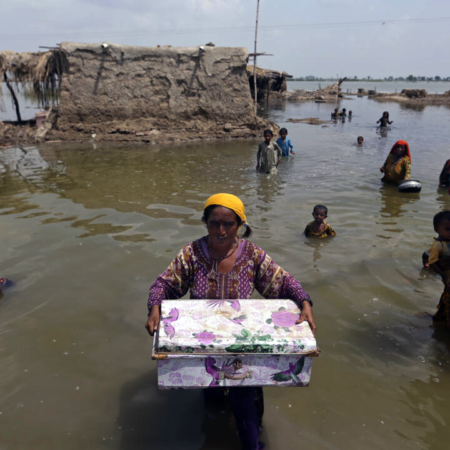Officials announced Wednesday that the 7th session of the Pakistan-Afghanistan Joint Coordination Committee (JCC), which will be held in Kabul, will include important discussions on border and security concerns.
The conference takes place amid escalating tensions between the two nations, including the repatriation of Afghan refugees, border clashes, and the rise in armed group activity in Pakistan following the Taliban’s 2021 takeover of Afghanistan.
Afghan officials have refuted Pakistan’s assertion that these armed organizations operate from Afghan territory, arguing that no nation may utilize Afghan territory against another.
Pakistan’s group, comprising military and intelligence personnel, is being led by Mohammad Sadiq, the country’s Special Representative for Afghanistan. According to the Islamabad office of Ambassador Sadiq, he arrived in Kabul this morning.
Conversely, Zabiullah Mujahid, a spokesman for the Afghan government, stated that Mullah Abdul Qayyum Zakir, the country’s deputy minister of defense, would chair the meeting.
One prominent Taliban figure, Mullah Abdul Qayyum Zakir, served as the head of the Taliban military commission during the 20-year conflict with US-Nato forces.
“To attend the JCC meeting, SAPM/Pakistan’s Special Representative for Afghanistan traveled to Kabul as the leader of a delegation. After a long break, the JCC meeting is taking place,” Sadiq’s X said.
Early in January 2024, in Islamabad, the JCC convened its most recent meeting.
Both sides will “discuss resolving potential disputes along the Durand Line and creating facilities for the people of both sides,” according to Afghan spokesperson Mujahid.
Taliban forces from Pakistan and Afghanistan engaged in gunfire last month when the Torkham border crossing was closed due to post construction.
After 27 days, Torkham was reopened on March 19 according to an agreement mediated by the Pakistan-Afghan Jirga.
Last month, Syed Jawad Hussain Kazmi, the head of the Pakistani Jirga, informed Dawn.com that the JCC would talk about whatever the Jirga determined, even a ceasefire until April 15.
He stated that both parties had decided to halt the controversial checkposts’ development.
A significant obstacle to the connection between Pakistan and Afghanistan, according to Pakistani officials, is the existence of the outlawed Tehreek-e-Taliban Pakistan (TTP) and other armed groups.
Additionally, the Pakistani Foreign Office disclosed last month that the terrorists responsible for the Jaffar Express hijacking had ties to Afghanistan, as evidenced by phone records that could be traced back to that country.
According to the Afghan Taliban, ISKP (Daesh) terrorists go from Balochistan and Khyber Pakhtunkhwa into Afghanistan. These allegations are unfounded, according to Pakistani officials.
Pak-Afghan trade discussions
Separately, Afghan Commerce Ministry spokesman Abdul Salam Jawad informed Dawn.com from Kabul that a delegation from the Afghan Ministry of Industry and Commerce, headed by its minister Noor Uddin Azizi, will travel to Pakistan today.
It is anticipated that the ministers of commerce from Pakistan and Afghanistan would continue to discuss the preferential trade agreement, a revised transit agreement, a reduction in taxes on specific commodities, and amenities for traders at border points.












No Comment! Be the first one.